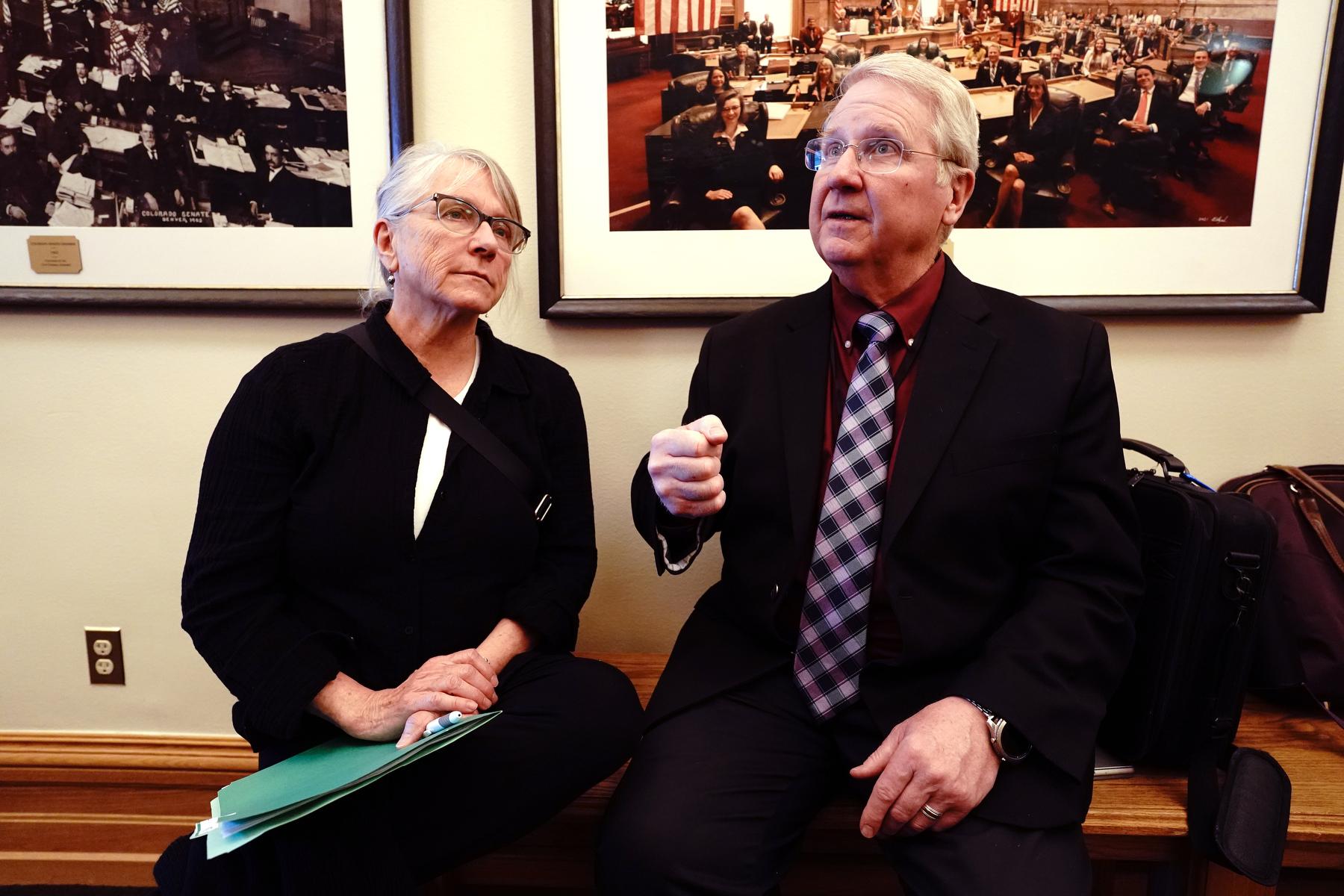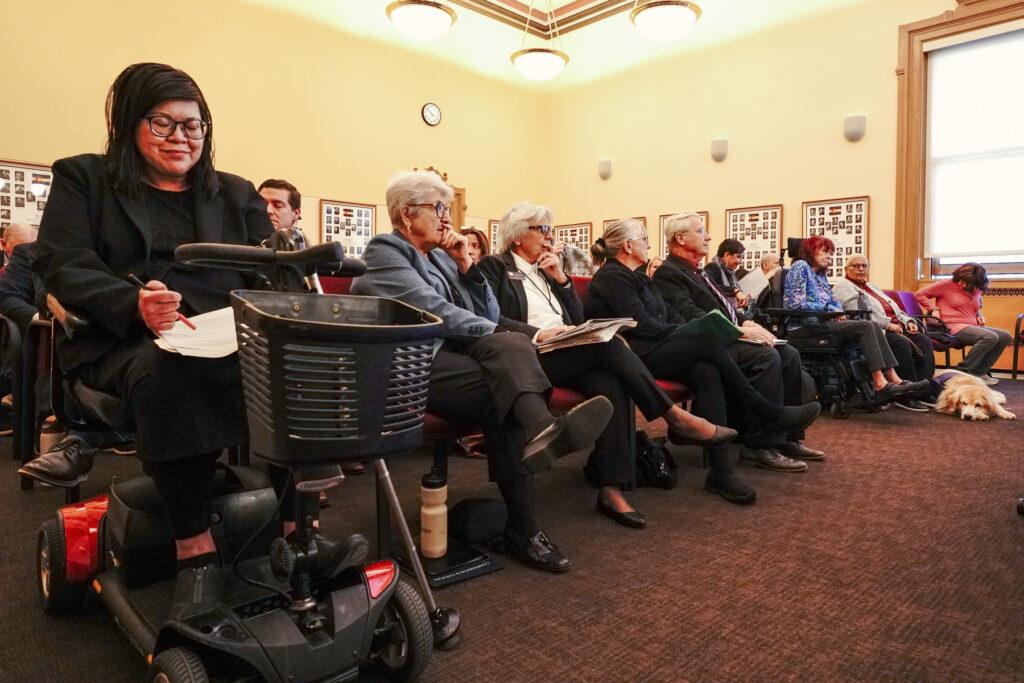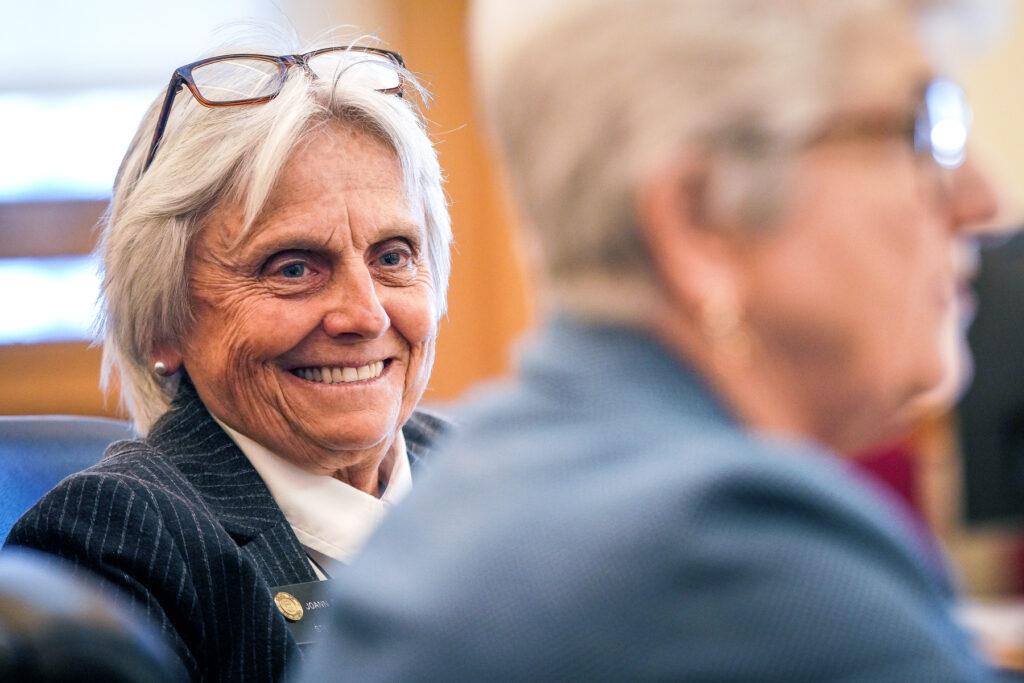
For the last seven years, terminally ill patients in Colorado have had the right to seek help to end their lives.
It was a path that Meghan Reese’s mother sought. In 2020, Kathie McDaniel was diagnosed with ovarian cancer and immediately knew medical aid in dying was a choice she wanted.
“Ovarian cancer has pretty bleak odds, so she wanted to make sure that she was prepared,” Reese said.
McDaniel had already seen the impact of cancer up close, after watching her own mother die a slow death from colon cancer, Reese said.
“My mom wanted to have the option. I don't know if she would've taken the medication, quite frankly, and I don't know that it matters either. It's just she would have the option if the pain got bad. She did not want to suffer or for us to watch her suffer,” Reese said.
But McDaniel never got that chance.
To obtain a lethal prescription in Colorado, two different doctors must sign off on the request, with at least 15 days between visits. While Reese’s mother had a prognosis of less than six months to live, her oncologist told her he didn’t participate in medical aid in dying. Reese said they made an appointment with a new doctor, but it was a month out.
“During that month, my mom was hospitalized three or four times. The cancer was growing,” she recalled.
McDaniel was then diagnosed with late stage breast cancer on top of ovarian cancer.
“It progressed a little quicker than we anticipated.”
It got to the point where Reese had to cold call physicians to try to get help, but in the end, her mother couldn’t get the prescription before she was too ill to make the verbal requests.
“My mom had very high pain tolerance and she never complained. So to see her wailing in pain, I knew as her daughter that it was horrific,” she said, adding that it was a traumatic end for all of McDaniel’s family members.
The law Colorado voters overwhelmingly passed in 2016 has a lot of guardrails in place to try to prevent abuse from occurring. Several people have asked CPR’s Colorado Wonders about the process.
“How difficult, or easy, is it to utilize the Colorado law about ending one's life with approval of doctors? Pros and cons, please?” inquired one listener.
Another wondered if Colorado might allow non-residents to participate in medical aid in dying in Colorado.
For Reese, her family’s experience with the law left her deeply frustrated.
“We had a lot of hope that even if there's hurdles along the way, we will get to a peaceful ending that my mom wants,” she said.
Data from the Colorado Department of Public Health and Environment found that in the last five years most patients who request medical aid in dying have terminal cancer or a neurological disorder, such as ALS. Only a few hundred patients a year get a prescription for the medication.

In 2022, the most recent year of data, 316 patients received the medicine.
The state doesn’t track how many patients eventually use it, but in other states that do track it, about 30 percent don’t take the medication, according to Death With Dignity, a medical aid in dying advocacy group. Dr. Cory Carroll, a family physician in Fort Collins, said some of those rules, like the length of the waiting period, can be too restrictive.
“It's still exquisitely hard to move through this process. In my practice, I've helped 22 patients, have been the attending, and about half of those are my existing patients who I've known for sometimes 20 years. Half of that group is going to be folks that have sought me out.”
Carroll said he hears all the time how difficult it is to find two doctors willing to sign off on a prescription to help a terminal patient die. It goes against many physicians’ personal and professional ethics, he said.
“You know this is contrary to what's taught in medical school. Generally speaking, a physician would balk at an idea of giving medications to a patient for the purpose of them dying.”
The Colorado Medical Society has a neutral stance on the issue, and ended up taking a neutral position on a bill moving through the state legislature to change some of the rules.
Carroll sees his willingness to approve medical aid in dying as an extension of his ongoing care for his patients.
“Every single one of us is going to die, and every single one of us may have really bad stuff happening at the end of life,” he said. “It just seems appropriate for a physician who understands these disease processes and the trajectories to intervene in a way that not only tells the patient, ‘I will be there and help you no matter what, but I'm going to give you everything I can to mitigate suffering.’”
Bill to change Colorado medical aid in dying law faces some opposition
Senate bill 68 seeks to expand access for medical aid in dying. The proposal would allow advanced practice registered nurses to approve the medication, not just doctors. Patients would still need two signatures, but the wait time between them would drop from 15 days to seven.
“What I'm trying to do right now with this bill is to make it more available to patients, but make it safe and make sure those patients are actually the patients that are wanting to take the medication, not being coerced,” said Democratic Sen. Joann Ginal of Fort Collins, the bill’s main sponsor.
Ginal originally proposed to reduce the waiting period to just 48 hours, but ultimately she decided she wasn’t comfortable with such a short window.
“What if you were just depressed? What if you're in a lot of pain and you're just in a mood and you say, ‘I want to do this.’ Something may happen within that 48 hours. I just, I am very protective of this bill. I'm very protective of patients.”

Another issue Ginal wanted to tackle was residency — she had wanted to allow out of state residents to be able to use medical aid in dying. However, that idea ran into too much resistance, so she agreed to take it out of the bill.
“We don't want this to become a death tourism state,” said Julie Reiskin, head of the Colorado Cross-Disability Coalition. “One of the safeguards in what we have now is that people have the relationship with their doctor.”
Disability rights activists have long been skeptical of medical aid in dying, concerned it could be misused to push people into ending their lives, especially if they feel like they’re a burden to their loved ones. Reiskin says any changes to the law’s guardrails should be made very cautiously.
“We want to make sure that if people are saying, ‘I am really done,’ that that's one thing, but not that people are not being pressured into ending their life prematurely because of something that could be fixed.”
Those who worry about potential abuse of medical aid in dying hope any shifts in the direction of Colorado’s law finds the right balance between access and appropriate caution. The proposal recently cleared the Senate Health and Human Services Committee on a vote of 7-1. The Cross Disability Coalition and Disability Law Colorado are officially neutral on the proposal. The Colorado Catholic Conference testified against it. The bill still needs to be considered by the full Senate.
Some of the debate around the issue, especially the residency requirement remaining in the bill, disappoints Jacob Shannon of Centennial. When his mother — who lived in Connecticut — was dying, she fought a legal battle to access medical aid in dying in Vermont, since it’s not legal in Connecticut. But he wonders what it would have been like if she could have come to Colorado instead.
“I have a home here, my girls are here, my mom's granddaughters. If she could have come here, she could have been in one of her family's homes. Why didn't I have that option to have my mom come here?”
Shannon and his family were able to be in the room with his mother when she took the medication in January in Vermont. He said it was a gift to see her at peace.
“There's a lot of preconceived notions of what death looks like and what death is supposed to be. And I think if we can slowly move this towards being more accessible to more people, then we're on the right journey. We're going in the right direction,” he said.
- The Wild West of weather: Mountains and mid-continent location combine to make Colorado home to big swings
- Here’s what’s behind those scammy social media ads for free solar panels
- Colorado’s outdoors are always a winner in the state lottery, even if you’re not
- What’s with all the closed rest areas on Colorado roads?
- Why does your windshield ice up on some nights and not others?








